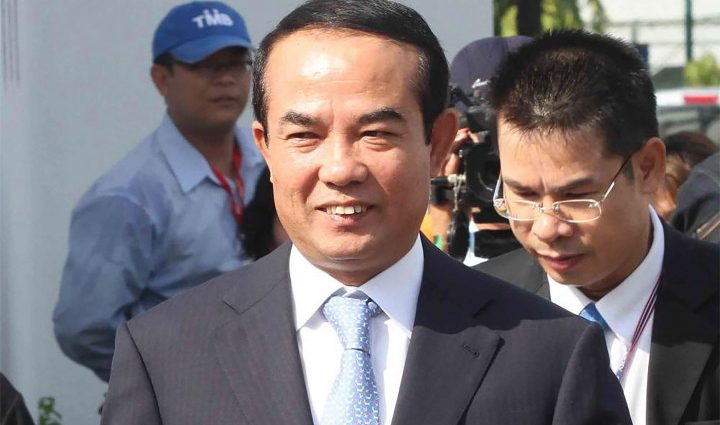House ‘could be dissolved mid-March’

The House is expected to be dissolved on March 15 and a general election held on May 7, according to Chinnaworn Boonyakiat, a Democrat Party MP for Nakhon Si Thammarat who also serves as a deputy chief government whip.
“March 15 appears to be the most likely timing for Prime Minister Prayut Chan-o-cha to announce he will dissolve the House and allow the new election to be called, considering the number of important bills that are waiting to be passed before the election,” said Mr Chinnaworn.
He said he excluded important budgetary bills from the list of bills that need to be passed before dissolving the House because the opposition is unlikely to vote for them now.
The opposition believes budgetary bills should be passed by the new government as it will have more time to take responsibility for them, he added.
Deputy Prime Minister Wissanu Krea-ngam, meanwhile, said he had not discussed with Gen Prayut when would be the best time to dissolve the House.
He was responding to questions raised about the possibility of the PM going down this road in March.
“There is that much time left before the speculated period [arrives], and the process of dissolving the House really isn’t that complicated,” Mr Wissanu said.
Gen Prayut, in his capacity as chairman of the United Thai Nation (UTN) Party’s strategic committee, is due to deliver a speech in Nakhon Ratchasima on Feb 25, said Seksakol Atthawong, an advisor to the PM and a member of that UTN committee.
He expects a large number of supporters will turn up to listen to Gen Prayut, though it is not yet known what he intends to talk about in the speech.
The prime minister hails from Nakhon Ratchasima, a province known as the main gateway to the Northeast, said Mr Seksakol.
In another development, Election Commission (EC) chairman Ittiporn Boonpracong insisted the EC believes its decision to include non-Thais in its calculation of the number of people represented per MP is correct.
He dismissed a suggestion by Mr Wissanu that the EC first seek a clear interpretation of the term “the population” in the constitution when deciding to include non-Thais in the now-controversial calculation.
He said the EC strictly follows Section 86 of the charter, which stipulates the size of the population recorded in the central civil registration database in the previous year must be used when calculating the number of constituencies.
The EC always sticks to this rule of calculating the number of constituencies and sees no reason for it to change at this point or petition the Constitutional Court to interpret the term population in Section 86 of the charter, he added.
Chaithawat Tulathon, secretary-general of the opposition Move Forward Party (MFP), said he was sceptical of the EC’s claim that the population count announced by the Ministry of Interior also included non-Thais.
Even Mr Wissanu, who is a legal expert in the cabinet, believes “population” as used in the charter only refers to Thai nationals, said Mr Chaithawat.
The MFP is concerned this lack of clarity in the EC’s redrawing of electoral boundaries for the 400 constituency MPs nationwide might end up causing the election results to be declared invalid, as once happened in 2006, said Mr Chaithawat.
Apart from the above, the MFP could not agree with any suggestions for the EC to seek the Constitutional Court’s interpretation on this matter, as that would only further delay the election, he said.
The party urges the EC to provide a clearer explanation to the public as to whether it always uses this principle when calculating the redrawing of constituencies, he said.
Niphon Bunyamanee, deputy leader of the Democrat Party, made a similar request to the EC before it proceeded with this way of calculating constituencies.
Any population changes that lead to a new constituency being drawn up in certain provinces will likely give some parties advantages over others, he said.

